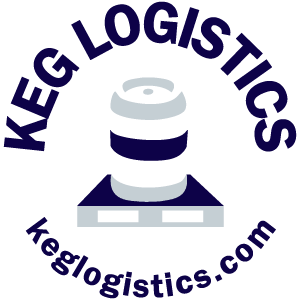There is a lot of talk about the handcrafted nature of beer, conjuring up idyllic images of artisan beverages. While that is certainly true for certain parts of brewing, automation is a necessary part of the process. Machines that make brewing easier in practice and on the back are welcome.
Chief among the necessary brewhouse accessories (for some) is the forklift.

Innovation featured expert topic supported by Keg Logistics
With the most flexible payment terms even the smallest operation can get the highest quality German-made kegs with our rent-to-own and short term keg leasing programs. And every rent-to-own keg features your branding front and center.
For breweries of a certain size that have the space and the need for something beyond a pallet jack a forklift can be a godsend.
There are a number of things to consider before adding one to the brewhouse toolbox says Robert Scott the Vice President at Atlantic Forklift Service in North Carolina.
While many will think of a forklift as a good took to have once a brewhouse is up and running he actually suggests getting one early on to assist with brewery construction, layout, and generally moving around all the various bits of heavy equipment.
There are also payment options to consider. Most companies will lease forklifts, much like a car, to companies that find that payment option more convenient.
“There are fair market value leases that can be stretched out five or six years,” he says.
There are also pre-owned options available for breweries that are not quite ready to buy new.
Scott says that breweries should be thinking ahead rather than in the immediate when it comes to forklift needs
“A lot of the time it depends on the aspiration of breweries,” he says. “Some will get started with a simple stacker which is very inexpensive but limited on what it can do or how high it can go. A lot of breweries that go that route wind up upgrading pretty quickly when they get fully set up.”
A forklift should be seen as a long-term commitment and planning for froth can save some money, and even down time, in the long run.
Certification is also important, he says. Much like a driver’s license being necessary to get on the road having proper forklift certification is needed before operating the machines.
Scott says there are usually two options available. His company offers a “train the trainer” program where one person in a company goes through the full certification process and then is eligible to teach others at the company how to properly and safely operate the forklift.
The other option is regular training run by the company for individuals. He says it consists of an online course that can be parsed out over time but takes roughly 90 minutes followed by a proper “road test” before certification.
The certification is required by the Occupational Safety and Health Administration (OSHA) and are valid for three years before re-certification is needed.
Forklifts can make brewing easier and life in the brewhouse manageable, but between the expense and responsibility it is best to spend time talking with professionals before making a purchase to make sure you are picking the right one that will be functional for your brewery and grow along with your business.